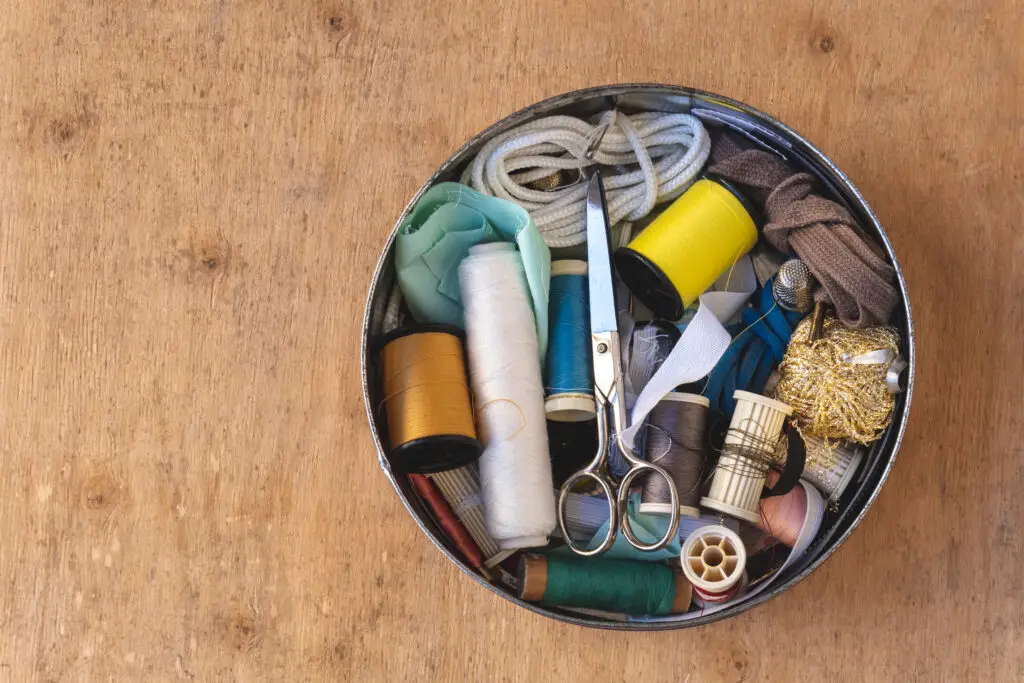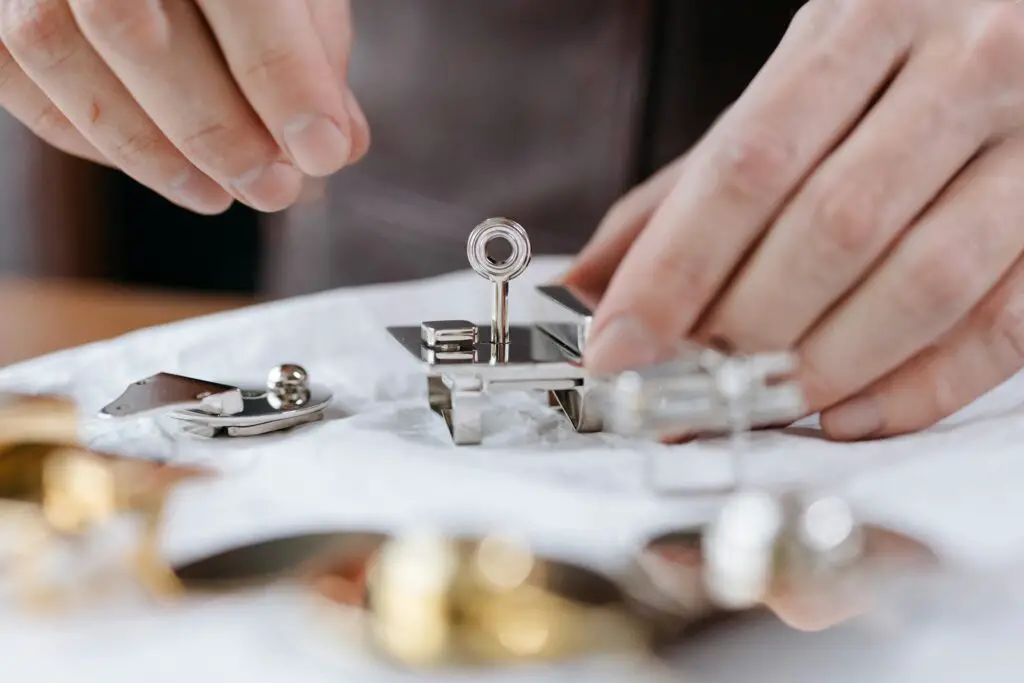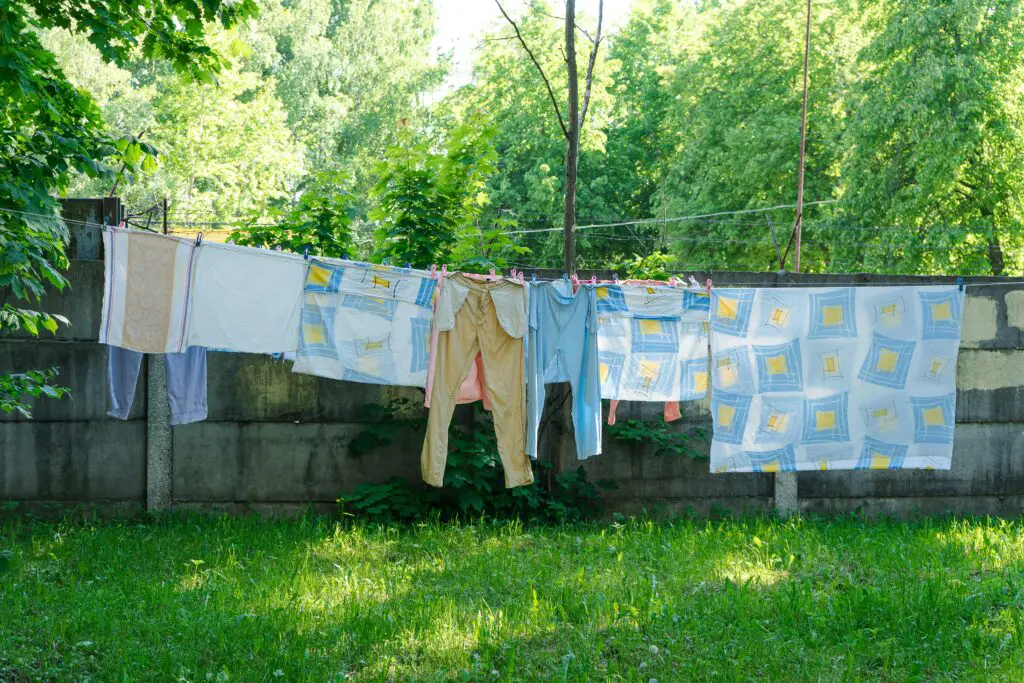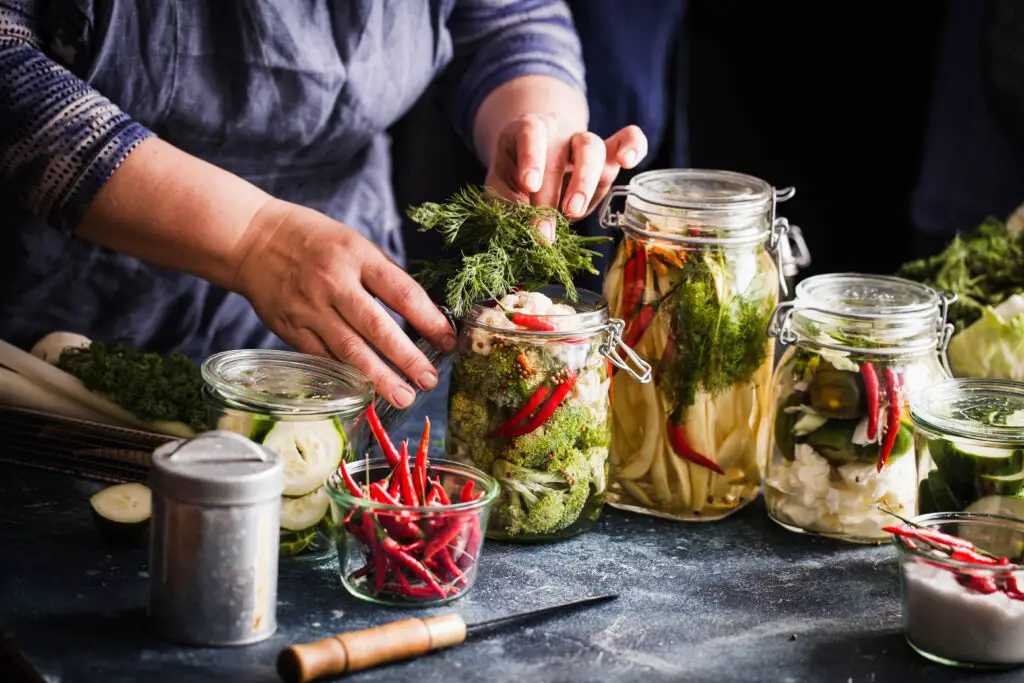1. Mending Clothes Instead of Tossing Them

Before fast fashion took over, your great-grandparents knew how to fix a tear, patch a hole, or even darn a sock. They didn’t see a snag as the end of the road for their wardrobe, just a quick sewing project. A simple needle and thread could stretch the life of a shirt by years, and most people had a sewing kit on hand, not just for emergencies but for everyday upkeep. Today, replacing clothes every time they rip can get expensive, especially when the quality isn’t what it used to be shares MSN.
Learning some basic mending can help you save a surprising amount over time. Plus, there’s a certain pride that comes with repairing something yourself. You don’t need to be a tailor, just willing to try. Whether it’s sewing on a button or stitching a loose hem, it’s all easier than it looks—and way cheaper than buying new adds the Washington Post.
2. Cooking from Scratch

Your great-grandparents didn’t rely on takeout or microwave meals. They made most of their food from scratch, using pantry staples like flour, beans, and root vegetables. Not only was it more affordable, but it also meant they had full control over what they were eating. There were no sneaky preservatives or added sugars in their soups and stews says Food & Wine.
If you’ve ever looked at your grocery bill after a week of convenience foods, you know how fast it adds up. Cooking at home, especially with bulk ingredients, can cut those costs dramatically. Even making your own bread or pasta can be more cost-effective than store-bought, and it’s often more satisfying too. The trick is to start small—maybe with a simple soup—and build up your skills like they did shares Los Angeles Times.
3. Growing Their Own Food

Victory gardens weren’t just patriotic, they were practical. Your great-grandparents knew how to grow vegetables, herbs, and even fruit in their backyards. They didn’t need a fancy greenhouse or tons of land either, just a little know-how and some patience. Tomatoes, beans, lettuce, and squash were common staples that filled both bellies and root cellars.
Nowadays, with grocery prices constantly fluctuating, having even a few homegrown options can ease the strain. Starting with a couple of pots on your patio is totally doable, even in an apartment. Fresh herbs like basil or rosemary can save you from buying expensive bundles at the store. Gardening is also a great way to slow down and feel more connected to what you eat.
4. Preserving Food for Later

Canning, pickling, fermenting—your great-grandparents were masters of making the most out of seasonal produce. When the garden was full, they didn’t let anything go to waste. Instead, they preserved it in jars so they’d have tomatoes for sauce or peaches for pie all year round. This wasn’t just about survival, it was smart planning.
Learning to preserve food might sound intimidating, but it can actually be fun and satisfying. A single afternoon of canning can leave you with months’ worth of salsa or jam. Plus, you’re not just saving money—you’re avoiding food waste and controlling the ingredients in your pantry. That homemade pickle or fruit spread might even taste better than store-bought.
5. Making Homemade Cleaning Products

Your great-grandparents didn’t have a cabinet full of specialized cleaners. They had vinegar, baking soda, maybe a little castile soap, and that was enough. These simple ingredients cleaned windows, scrubbed tubs, and freshened laundry for a fraction of the cost of modern cleaners. They also didn’t contain all the unpronounceable chemicals we see today.
Mixing up your own cleaner is as easy as combining vinegar and water in a spray bottle. Add a few drops of essential oil if you want a nicer scent. Not only will this save you money, it also cuts down on packaging waste. Plus, it’s surprisingly effective—just like the old days.
6. Bartering and Trading Skills

Cash wasn’t always the first option. Your great-grandparents often exchanged services or goods with neighbors. Maybe someone fixed shoes in exchange for fresh eggs or helped paint a barn in return for firewood. This community-based approach meant people leaned on each other, not just their wallets.
In today’s gig economy, bartering might sound outdated, but it’s making a comeback. Trading your skills—like tutoring, pet sitting, or graphic design—for something you need can be incredibly cost-effective. You just need to start by asking around. You’d be surprised how many people are open to a trade if you’re willing to offer something in return.
7. Fixing Household Items

If the toaster broke, your great-grandparents didn’t toss it. They popped it open, figured out what was wrong, and tried to fix it. They believed in getting their money’s worth, and often they could repair small appliances, furniture, or tools with what they had on hand. They didn’t have YouTube tutorials, just good old-fashioned tinkering.
Today, we’re often quick to replace instead of repair, but that mindset costs us. Learning basic troubleshooting or knowing when to tighten a screw or replace a part can save hundreds over time. Libraries often have tool kits, and some communities even have repair cafés to help you learn. It’s a great way to build confidence and save cash.
8. Making Do With What They Had

Your great-grandparents weren’t constantly upgrading or shopping for new things. If they had a coat, they wore it until it truly wore out. If the couch got saggy, they added cushions. They understood that “new” wasn’t always necessary, and that you could work with what you had.
This mindset can be a powerful money-saver today. Before replacing something, ask yourself if it really needs to be replaced or just refreshed. Can you paint it, repurpose it, or fix it up? Embracing a little creativity and contentment like they did can keep your bank account happier.
9. Using Everything to the Last Drop

Your great-grandparents didn’t throw away the end of the soap bar or half a jar of jam. They made soap slivers into new bars, added water to sauces, and scraped every last bit out of containers. It wasn’t being stingy, it was being smart with resources. Waste was a luxury they couldn’t afford.
It might sound small, but using everything can really add up over time. That includes food scraps you can turn into broth, or leftovers that become tomorrow’s lunch. Even saving old jars to reuse instead of buying storage containers is a win. Every little bit stretches your budget a bit further, just like they did.
10. Line Drying Laundry

Back then, dryers weren’t common—and they weren’t missed. Your great-grandparents hung laundry on clotheslines, saving energy and preserving their clothes longer. Sunlight is a natural disinfectant, and the fresh scent from a line-dried sheet is hard to beat. Plus, they didn’t pay for electricity to do what the sun and wind could do for free.
These days, line drying might feel like a chore, but it’s also a money-saver. You can get a foldable rack for indoors or string up a line in your yard. Your clothes will thank you too—no shrinking or extra wear from high heat. It’s one of the simplest ways to cut your utility bills.
11. Reusing and Repurposing Everything

Before recycling was trendy, your great-grandparents were doing it out of necessity. Coffee cans became storage bins, flour sacks turned into aprons, and old clothes were sewn into quilts. Nothing was tossed out without considering how it could be used again. This practical creativity was both eco-friendly and budget-friendly.
You can bring that same spirit into your home today. Try turning old t-shirts into cleaning rags or using jars as plant holders. Repurposing doesn’t have to be crafty or complicated—just thoughtful. Every time you reuse something instead of buying new, you’re keeping money in your pocket.
12. Living Without Credit

Perhaps one of the most powerful habits they had was avoiding debt whenever possible. Your great-grandparents didn’t rely on credit cards—they paid with cash or not at all. Layaway was common, and big purchases were carefully planned and saved for. That kind of financial discipline is rare today, but still valuable.
Avoiding unnecessary debt can keep you from drowning in interest and fees. It encourages smarter decisions, less impulse spending, and more long-term thinking. Building a budget and sticking to it, like they did, can help you feel more in control of your finances. It may not be flashy, but it’s definitely effective.
